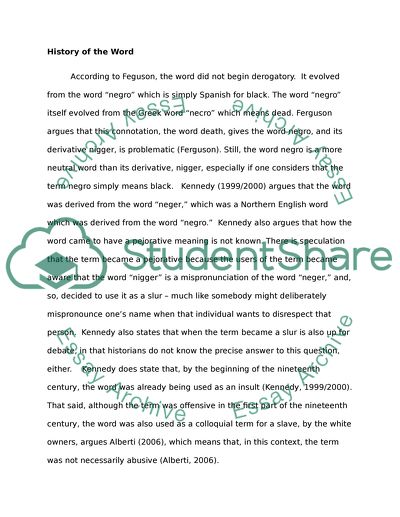Cite this document
(“The Concept of the Word Nigger Essay Example | Topics and Well Written Essays - 1750 words - 1”, n.d.)
The Concept of the Word Nigger Essay Example | Topics and Well Written Essays - 1750 words - 1. Retrieved from https://studentshare.org/sociology/1593785-the-analysis-essay-analysis-of-a-word
The Concept of the Word Nigger Essay Example | Topics and Well Written Essays - 1750 words - 1. Retrieved from https://studentshare.org/sociology/1593785-the-analysis-essay-analysis-of-a-word
(The Concept of the Word Nigger Essay Example | Topics and Well Written Essays - 1750 Words - 1)
The Concept of the Word Nigger Essay Example | Topics and Well Written Essays - 1750 Words - 1. https://studentshare.org/sociology/1593785-the-analysis-essay-analysis-of-a-word.
The Concept of the Word Nigger Essay Example | Topics and Well Written Essays - 1750 Words - 1. https://studentshare.org/sociology/1593785-the-analysis-essay-analysis-of-a-word.
“The Concept of the Word Nigger Essay Example | Topics and Well Written Essays - 1750 Words - 1”, n.d. https://studentshare.org/sociology/1593785-the-analysis-essay-analysis-of-a-word.


